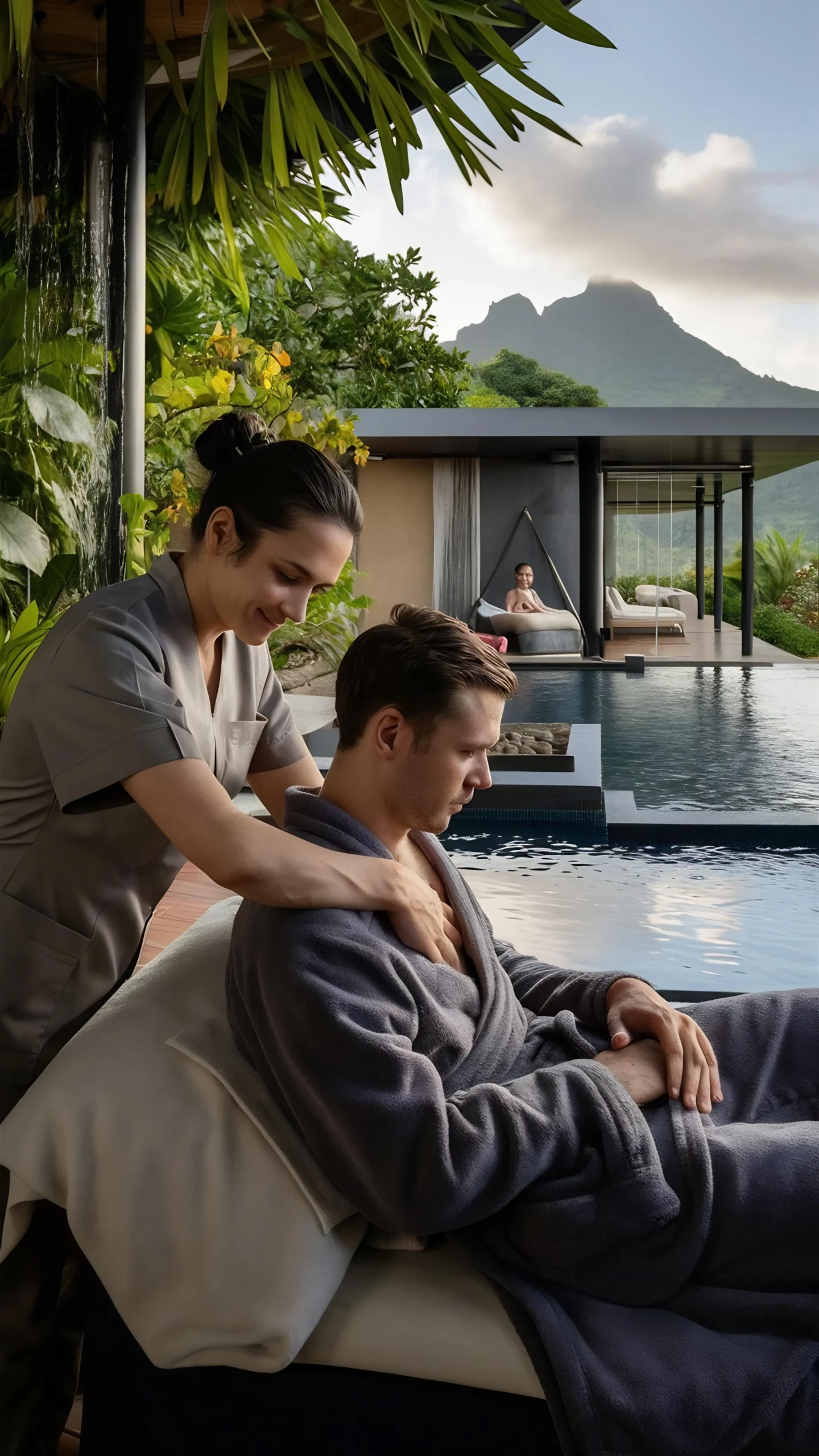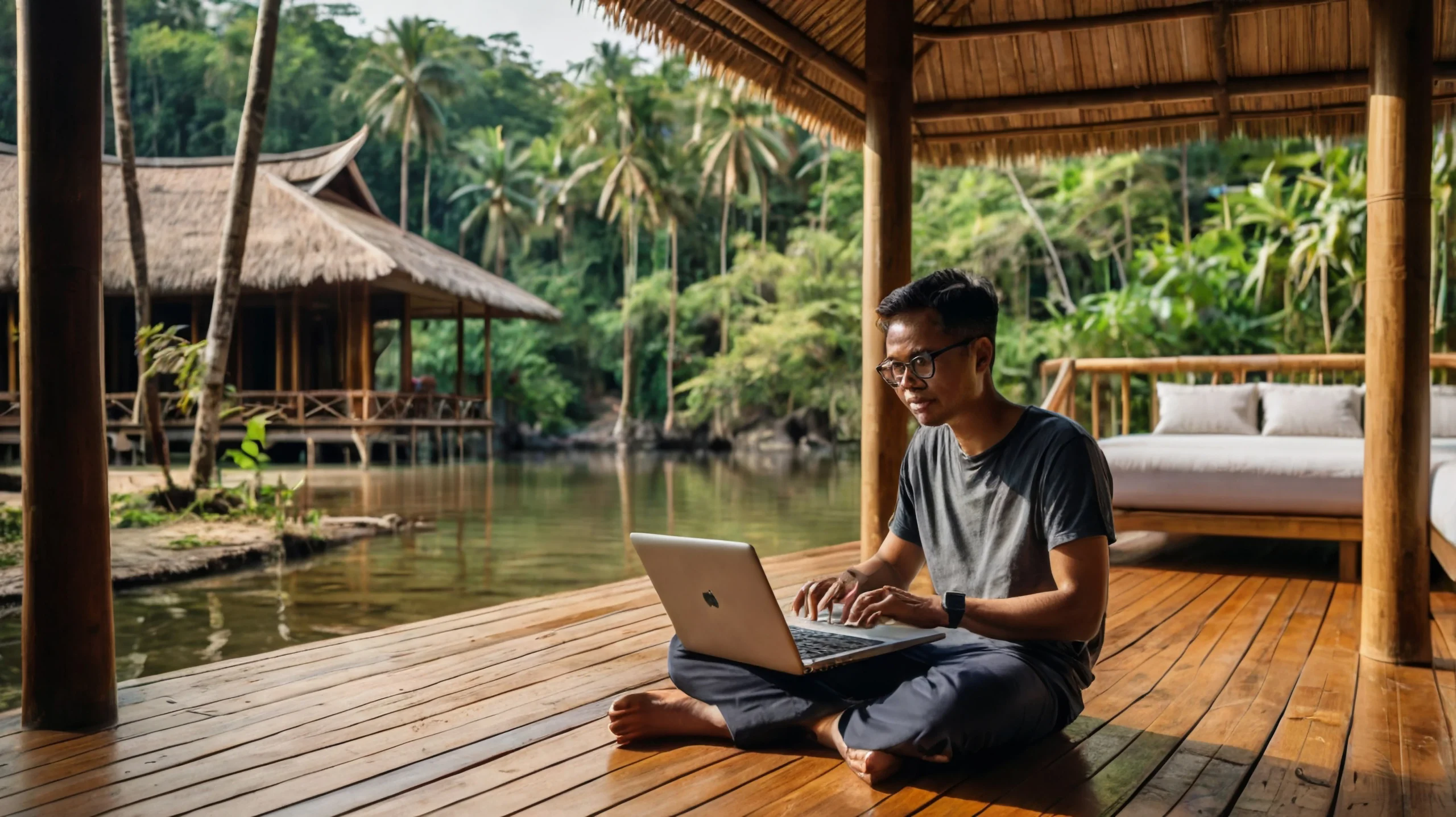As Wellness Travel in Asia continues to rise globally, Asia has emerged as a premier destination for travelers seeking relaxation, rejuvenation, and a connection with age-old wellness practices. From yoga retreats in India to eco-friendly spas in Thailand, Asia’s wellness retreats are setting trends and shaping how people everywhere view self-care and holistic health.
Why Asia is a Wellness Hub
Asia’s rich cultural heritage, rooted in practices like meditation, herbal healing, and yoga, provides a unique backdrop for Wellness Travel in Asia. Wellness isn’t just a modern trend here; it’s woven into daily life. From India’s Ayurveda to Japan’s onsen (hot spring baths), these practices have a deep significance in Asian culture. This authenticity attracts travelers seeking more than just a spa day; they’re looking for a transformative experience.
Asian retreats don’t just offer a wellness service—they provide a full cultural immersion. Each practice is steeped in history, offering guests a rare insight into traditions that have been preserved and honored for centuries.
Popular Destinations for Wellness in Asia
Several Asian countries have become go-to destinations for Wellness Travel in Asia. Here’s a closer look:
Thailand
Known for its beautiful landscapes and expert spa therapies, Thailand has established itself as a wellness capital. Resorts in Chiang Mai and Phuket offer meditation, detox programs, and holistic therapies set in serene, natural settings.
Bali, Indonesia
Bali is renowned for its yoga retreats and spiritual energy. Ubud, in particular, has a reputation for drawing those looking to connect with nature and themselves. Yoga, organic food, and eco-friendly accommodations make Bali a top wellness destination.
India
As the birthplace of yoga and Ayurveda, India offers a profound experience for wellness seekers. Places like Rishikesh and Kerala are renowned for authentic yoga ashrams and Ayurvedic centers, where practices go beyond wellness to become a spiritual journey.
Japan
Japan offers unique wellness experiences centered around tranquility and simplicity. The Japanese onsen culture promotes relaxation and healing, and regions like Hakone offer hot springs surrounded by nature. Zen meditation and mindfulness retreats are also popular for visitors seeking mental clarity.
Types of Wellness Retreats in Asia
Asian wellness retreats are known for their variety, catering to different wellness needs and preferences:
Meditation and Mindfulness Centers
These centers, common in Thailand and India, guide participants in techniques to improve mental clarity, reduce stress, and embrace mindfulness in daily life.
Yoga and Ayurveda Retreats
In India, yoga and Ayurveda retreats attract travelers from across the globe. These retreats offer a deep dive into practices focused on physical, mental, and spiritual health, with daily yoga sessions, Ayurvedic massages, and diet plans tailored to each individual’s constitution.
Detox and Holistic Healing
Many Asian resorts specialize in detox programs, using diet, exercise, and natural therapies to cleanse the body. Some resorts also incorporate traditional Chinese medicine or Japanese Shiatsu, offering alternative paths to healing and wellness.
Each retreat provides more than just relaxation; they often include classes and personalized sessions to help guests continue their wellness journey long after they return home.
The Influence of Asian Wellness on Global Trends
Wellness Travel in Asia has had a significant impact on global wellness trends. Yoga and meditation, once foreign concepts in the West, are now common components of mainstream wellness. Ayurvedic principles, such as balancing one’s body type through diet and lifestyle, have influenced health-conscious practices worldwide.
Natural therapies, a mainstay of Asian wellness, have also taken root globally. Spa treatments, herbal remedies, and detox programs inspired by Asian traditions have gained popularity for their holistic approach. These practices emphasize the interconnectedness of mind, body, and spirit—a perspective increasingly embraced around the world.
Sustainability and Eco-Friendly Practices in Asian Retreats
As wellness tourism grows, so does the demand for eco-conscious travel. Wellness Travel in Asia is setting a high standard by focusing on sustainability. From using natural building materials to sourcing food locally, many wellness centers in Asia are committed to reducing their environmental impact.
For example, eco-resorts in Bali and Thailand incorporate solar energy, minimize waste, and promote organic agriculture. They encourage travelers to embrace mindful consumption, providing an environmentally friendly retreat experience that aligns with the wellness philosophy of harmony with nature.
This focus on sustainability not only attracts eco-conscious travelers but also aligns with the wellness journey—promoting a sense of responsibility and care that extends beyond the self to the environment.
Future of Wellness Travel in Asia
The future of Wellness Travel in Asia looks promising, with trends pointing toward more personalized, immersive, and transformative experiences. Upcoming trends include:
Tech-Enhanced Wellness
From virtual yoga classes to digital detox programs, technology is likely to play a greater role in wellness tourism. Smart wellness rooms, wearable wellness devices, and meditation apps may become part of the experience, even in remote settings.
Focus on Mental Health
As mental health becomes a global priority, more Asian retreats are incorporating mental wellness programs, including therapy sessions, emotional well-being workshops, and mindfulness coaching.
Increased Interest in Traditional Healing
Practices like Ayurveda, traditional Chinese medicine, and herbal therapies are seeing renewed interest, with travelers seeking natural and preventive health approaches.
As Wellness Travel in Asia evolves, Asian retreats continue to be at the forefront, offering innovative yet deeply traditional approaches to well-being.
Conclusion
Wellness Travel in Asia is more than just a travel trend—it’s a lifestyle movement shaping global perceptions of health, relaxation, and personal growth. For travelers seeking a holistic approach to wellness, Asia offers a unique, immersive experience that goes beyond the standard spa getaway. As these retreats grow in popularity, their practices and principles continue to influence wellness worldwide, emphasizing balance, sustainability, and the deep connection between body, mind, and spirit.


